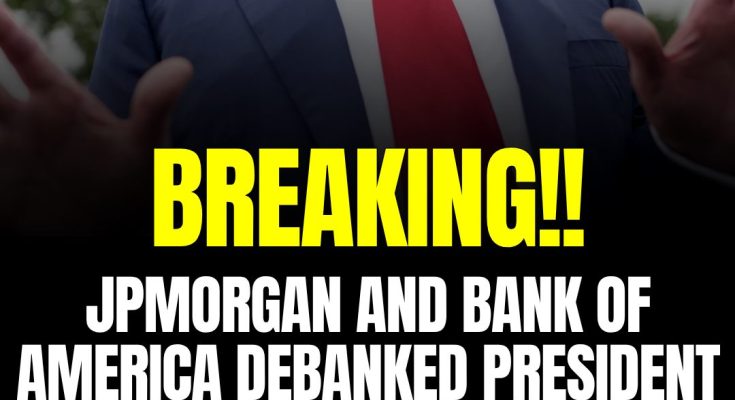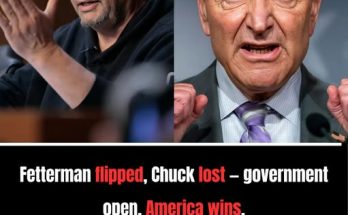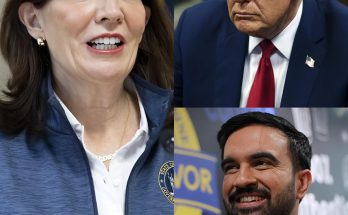
JPMorgan and Bank of America reportedly “debanked” President Donald J. Trump under direct pressure from the Biden administration’s regulators following the events of January 6.
According to multiple sources cited by the New York Post, the two banking giants removed Trump as a client over so-called “reputational risk” concerns, a vague, opaque rationale weaponized against political adversaries.

The Post’s report, backed by individuals inside both institutions, details how officials from the Office of the Comptroller of the Currency, the Federal Reserve, and the FDIC coerced banks into treating President Trump’s financial presence as a liability.
These same regulators, sources said, expanded the definition of reputational risk far beyond its traditional scope, previously aimed at criminals and fraudsters, to now include conservatives, Trump supporters, and anyone remotely tied to January 6.
One unnamed executive put it plainly: “Think back to what it was like being Trump back in 2021; he was a hot potato after January 6, and the regulators made it clear to us that we shouldn’t do business with him.”
JPMorgan, one of Trump’s longtime banking partners, was reportedly the first to sever ties.
Trump disclosed that he had “many, many accounts loaded up with cash” and was told, “You have 20 days to get out.”
Despite a four-decade relationship with JPMorgan, Trump’s wealth and loyalty were no match for the political pressure.
The bank’s public statement claimed, “We don’t close accounts for political reasons,” yet it conspicuously did not deny that the reputation risk clause led to Trump’s ousting.
What followed was a rejection from Bank of America. In an interview with CNBC, Trump shared that CEO Brian Moynihan refused to allow him to open accounts despite the former president’s intention to deposit over a billion dollars.
“He was kissing my ass when I was president,” Trump said, “and when I called him after I was president… he said, ‘We can’t do it.’”
This form of financial excommunication is more than a personal affront—it is a declaration of war against political dissent. It is the manifestation of an administrative state using financial tools to silence, punish, and exclude.
These revelations confirm what many conservatives have long feared: debanking is no longer a theoretical threat. It is real. It is happening. And it is being orchestrated from the highest levels of regulatory power.
President Trump, now in his second term, has vowed to destroy this corrupt practice. His administration has already ceased enforcement of the reputational risk clause.

Furthermore, he announced his plan to issue an executive order banning politically motivated debanking.
This is not just about Trump. This is about every American who dares to speak out, vote differently, or attend a protest that the left disapproves of.
It is about a country where power brokers manipulate systems to destroy their political enemies.
Senator Tim Scott is leading the legislative charge to ban debanking outright. “It is unacceptable for banks to discriminate against customers or prospective customers based on political or religious beliefs,” said Comptroller of the Currency Jonathan V. Gould.
“We must depoliticize the federal banking system and ensure fair access to financial services.”
The silence from the Federal Reserve and FDIC speaks volumes. Their refusal to comment betrays complicity or, at minimum, cowardice.
Banks were once institutions of trust. Now, under liberal pressure, they have become ideological enforcers. In place of free-market principles, we see Soviet-style blacklisting.



